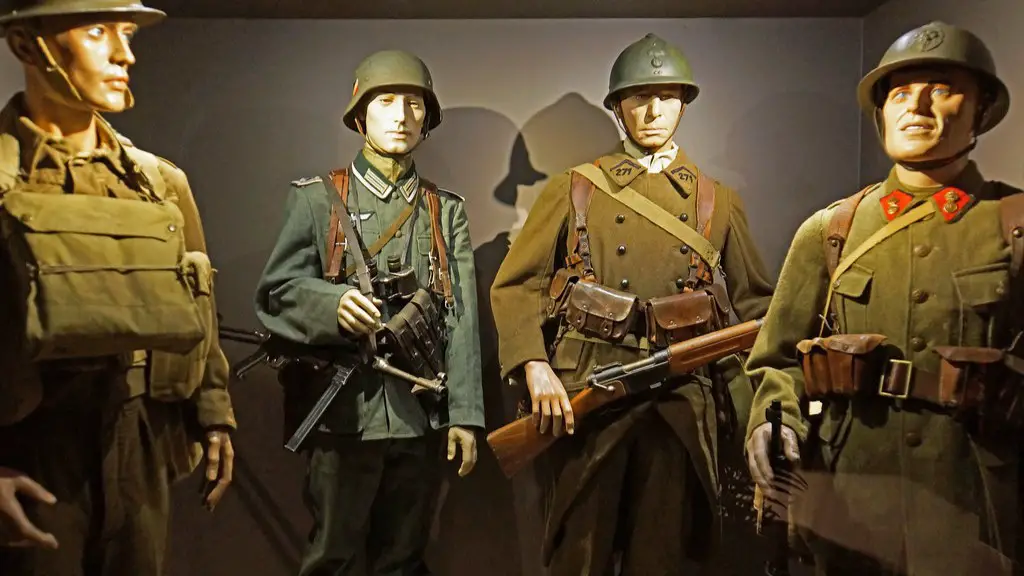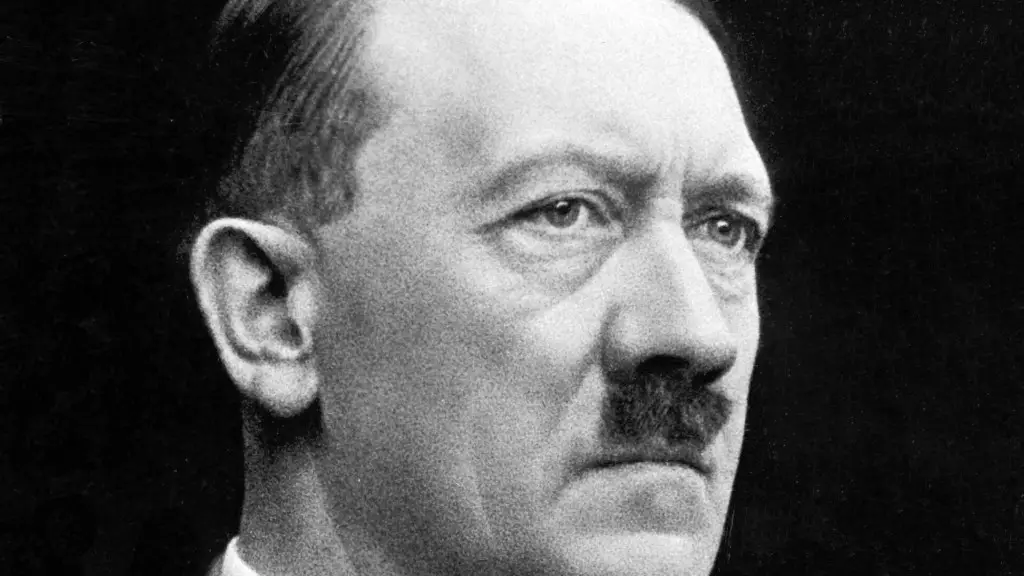Background Information
Adolf Hitler hated Jewish people for multiple reasons. He was a ruthless dictator, and also a staunch proponent of his nation’s superiority. He was a far-right political leader and his strong beliefs in the superiority of Aryan race over others make it easy to see why he hated Jewish people. He also despised Jewish communities because of their religious beliefs, and he felt that they were a hindrance to his vision of a unified and prosperous Germany.
Adolf Hitler, who was born in 1889, was an Austrian-born German politician, who became the leader of the Nazi Party and the ruler of Germany from 1933 to 1945. To realize his goal of making Germany the greatest country in the world, he first had to unite the German people. Doing so would require him to remove any and all obstacles that stood in his way, including the Jews.
Reasons for Hatred
Hitler’s hatred for Jews stemmed from multiple reasons, including their non-Aryan origin, their religious practices, their influence in the German economy and their involvement in German political life. Hitler saw Jewish people as a threat to the unity and strength of the German nation and believed that they needed to be eliminated. He blamed the Jews for all of Germany’s economic, social and political problems and used them as scapegoats to mask his own inadequacy and failures as a leader. As such, he declared them as “enemies of the state” and set out to eliminate them.
Hitler’s irrational hatred of Jews was fueled by a variety of anti-Semitic beliefs, including the idea that Jews were conspiring to control the world, were a source of disease and were responsible for Germany’s economic problems. Nazi propaganda further reinforced these beliefs and promoted the idea of a unified German master race, at the expense of all other races, including the Jews.
Holocaust and Genocide
Hitler’s hatred of Jews ultimately led to the systematic murder of six million Jews, referred to as the Holocaust. This event occurred during the period of World War II, when Nazi Germany occupied large areas of Europe and systematically exterminated those considered undesirable by Adolf Hitler. Concentration camps were established in order to incarcerate and kill Jews, Romani, homosexuals, disabled persons and enemies of the state.
The Holocaust is considered one of the most heinous crimes against humanity in history and it serves as a stark reminder of just how powerful human hatred and prejudice can be. Furthermore, the Holocaust demonstrated just how easy it was for a leader with a twisted ideology to manipulate and manipulate a nation’s citizens into believing that certain classes of people had no worth and were a detriment to society.
Economic Recessions
Another factor that fueled Hitler’s hatred of Jewish people was the economic recession that Germany experienced during the 1920s. During this period, German citizens were facing extreme poverty and staggering unemployment levels. As a result, some began to blame the Jews for the nation’s financial crisis and supported Hitler’s rhetoric against them.
This anti-Semitism was one of the most important factors in the rise of Hitler and his Nazi Party, as he was able to capitalize on the nation’s economic troubles to further his agenda of creating a unified German master race. This meant marginalizing and ultimately eliminating Jewish people, with disastrous consequences.
Modern Day Relevance
Though Adolf Hitler and the Nazi regime are long gone, the issue of anti-Semitism and prejudice against Jewish people is still deeply rooted in modern-day society. Neo-Nazi movements have cropped up around the world, and hate crimes against Jews still occur.
What’s more, Adolf Hitler’s rhetoric has been echoed by many political leaders, namely U.S. President Donald Trump. President Trump has used anti-Semitic language to target the Jewish community and has refused to disavow the support of white supremacist organizations. This behavior has emboldened white nationalist organizations and their members, and even given rise to hate crimes across the world.
Snapshots of Jewish People Suffering
The persecution and suffering of Jewish people by Nazi Germany still haunts history books and sadly paints snapshots of the devastation and terror experienced by countless Jews during the Holocaust. Jews were sent to concentration camps, stripped of their homes and possessions, forcibly removed from their communities and ultimately murdered by the thousands.
These horrific images are a dire reminder of the power of prejudice and the devastating effects it can have on a nation and its people. The experiences of Jewish people during World War II show again and again that such hatred and intolerance of any kind shatters communities, destroys families and tears apart societies.
Final Thoughts
Adolf Hitler’s hatred of Jewish people is an ugly part of history and a stark warning to the world of the devastating power of prejudice and intolerance. We must learn from these lessons of the past in order to ensure that such events never occur again. We must strive to create a more tolerant and accepting society where all people are respected, regardless of their faith, race or ethnicity.
Finding Solutions
One of the primary ways to combat prejudice and intolerance is through education. Learning about different cultures, religions and ethnicities can help to promote understanding and acceptance of diversity. Additionally, fostering an environment where different perspectives and views are respected and heard can further help to create an understanding and appreciation of differences.
It is also important to recognize that prejudice runs deep and takes time and effort to address. It is important to recognize that prejudice oftentimes stems from fear and misunderstanding and to take steps to recognize and combat it.
Laws and Government Policies
Similarly, governments must take action to combat prejudice through the introduction of laws and policies that protect those targeted by prejudice and intolerance. These laws should hold those who participate in or support hate speech and violence accountable for their actions.
Furthermore, governments should work to promote policies and initiatives that foster understanding, end discrimination and create a more inclusive society. For example, creating programs and grants to promote diversity and inclusion, as well as funding education initiatives, can be key in working to reduce prejudice and build a stronger, more united society.
Conclusion
Adolf Hitler’s hatred of Jewish people has had dire and devastating consequences, and it serves as a warning for the entire world about the power of prejudice and intolerance. To prevent such hatred and violence from ever happening again, we must recognize it and work to end it wherever it exists. Through education, understanding and government policies, we can all work together to create a more united and prosperous world.


